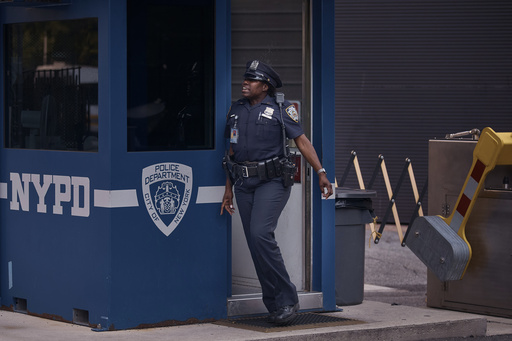Ahead of the upcoming 2022 school year, the education technology company 21stCentEd aimed to increase its presence within New York City’s public schools. This endeavor led them to enlist the help of Terence Banks, a man running a new consulting firm with connections to influential government figures. Although Banks was not a registered lobbyist and worked as a supervisor in the city’s subway system, his familial ties were prominent, including his brother David Banks, who serves as New York City’s schools chancellor.
Shortly after Terence Banks was hired, 21stCentEd successfully arranged a private meeting with the schools chancellor. Over the following two years since the meeting in October 2022, records reveal that the company received over $1.4 million in Education Department funds, significantly increasing its previous income. The Banks siblings, along with their brother Philip Banks, who holds the position of New York City’s deputy mayor of public safety, are now part of a broad federal investigation involving several high-ranking members of Mayor Eric Adams’ administration.
Last week, federal investigators confiscated phones from all three Banks brothers, along with at least three other top city officials, including resigned Police Commissioner Edward Caban. The nature of the investigations has not been fully disclosed. Among the issues being explored is the involvement of Terence Banks’ consulting firm, the Pearl Alliance, in allegedly leveraging his family connections to assist private companies in securing city contracts.
While the Banks brothers deny any wrongdoing, concerns have been raised about potential conflicts of interest, as the family’s combined work in both the private and public sectors may have violated conflict of interest regulations and procurement lobbying laws at the city and state levels. Despite assertions from attorneys that Terence Banks is not a target of the investigation, questions linger about the family’s involvement in these matters.
City ethics regulations prohibit relatives from lobbying each other, necessitating a waiver from the city’s Conflicts of Interest Board for David Banks to engage with a company represented by his brother. The opacity around whether such a waiver was sought raises further ethical concerns, drawing scrutiny from government watchdogs and observers within the state.
As investigations unfold, the city remains on edge, waiting for more clarity on the probe’s scope and potential repercussions for those involved. The intertwined relationships and alleged improprieties underscore the importance of transparency and adherence to established ethical standards within governmental and private entities operating within the public sphere.


